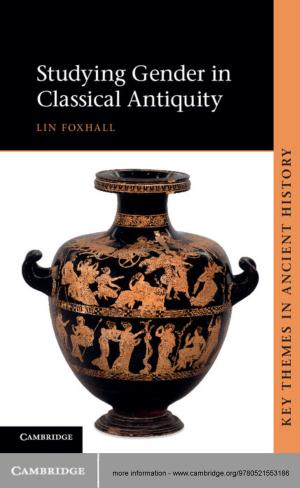Science, Form, and the Problem of Induction in British Romanticism
Fiction & Literature, Literary Theory & Criticism, British, Nonfiction, Science & Nature, Science| Author: | Dahlia Porter | ISBN: | 9781108311465 |
| Publisher: | Cambridge University Press | Publication: | June 7, 2018 |
| Imprint: | Cambridge University Press | Language: | English |
| Author: | Dahlia Porter |
| ISBN: | 9781108311465 |
| Publisher: | Cambridge University Press |
| Publication: | June 7, 2018 |
| Imprint: | Cambridge University Press |
| Language: | English |
Exploring a topic at the intersection of science, philosophy and literature in the late eighteenth century Dahlia Porter traces the history of induction as a writerly practice - as a procedure for manipulating textual evidence by selective quotation - from its roots in Francis Bacon's experimental philosophy to its pervasiveness across Enlightenment moral philosophy, aesthetics, literary criticism, and literature itself. Porter brings this history to bear on an omnipresent feature of Romantic-era literature, its mixtures of verse and prose. Combining analyses of printed books and manuscripts with recent scholarship in the history of science, she elucidates the compositional practices and formal dilemmas of Erasmus Darwin, Robert Southey, Charlotte Smith, Maria Edgeworth, and Samuel Taylor Coleridge. In doing so she re-examines the relationship between Romantic literature and eighteenth-century empiricist science, philosophy, and forms of art and explores how Romantic writers engaged with the ideas of Enlightenment empiricism in their work.
Exploring a topic at the intersection of science, philosophy and literature in the late eighteenth century Dahlia Porter traces the history of induction as a writerly practice - as a procedure for manipulating textual evidence by selective quotation - from its roots in Francis Bacon's experimental philosophy to its pervasiveness across Enlightenment moral philosophy, aesthetics, literary criticism, and literature itself. Porter brings this history to bear on an omnipresent feature of Romantic-era literature, its mixtures of verse and prose. Combining analyses of printed books and manuscripts with recent scholarship in the history of science, she elucidates the compositional practices and formal dilemmas of Erasmus Darwin, Robert Southey, Charlotte Smith, Maria Edgeworth, and Samuel Taylor Coleridge. In doing so she re-examines the relationship between Romantic literature and eighteenth-century empiricist science, philosophy, and forms of art and explores how Romantic writers engaged with the ideas of Enlightenment empiricism in their work.















